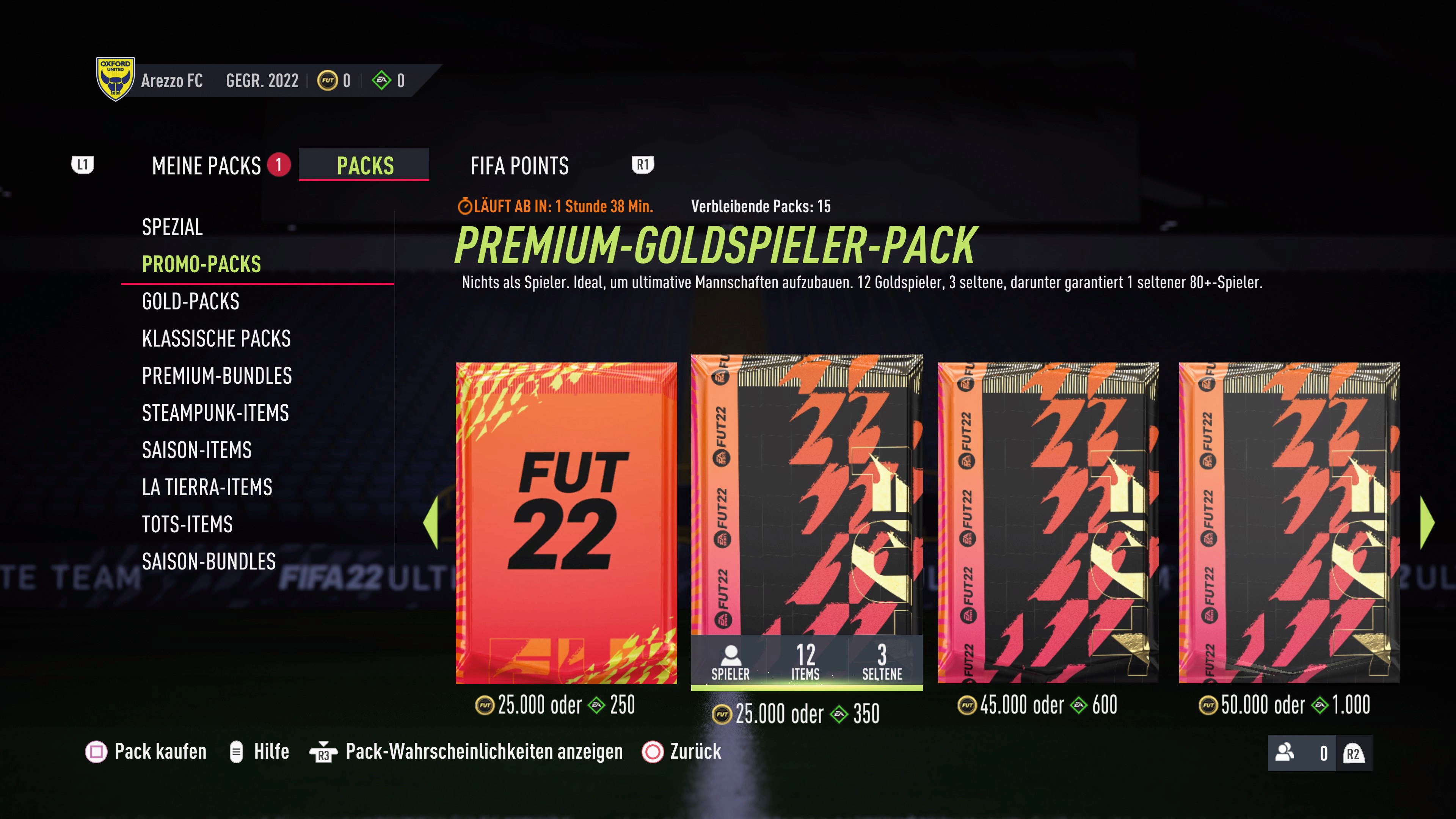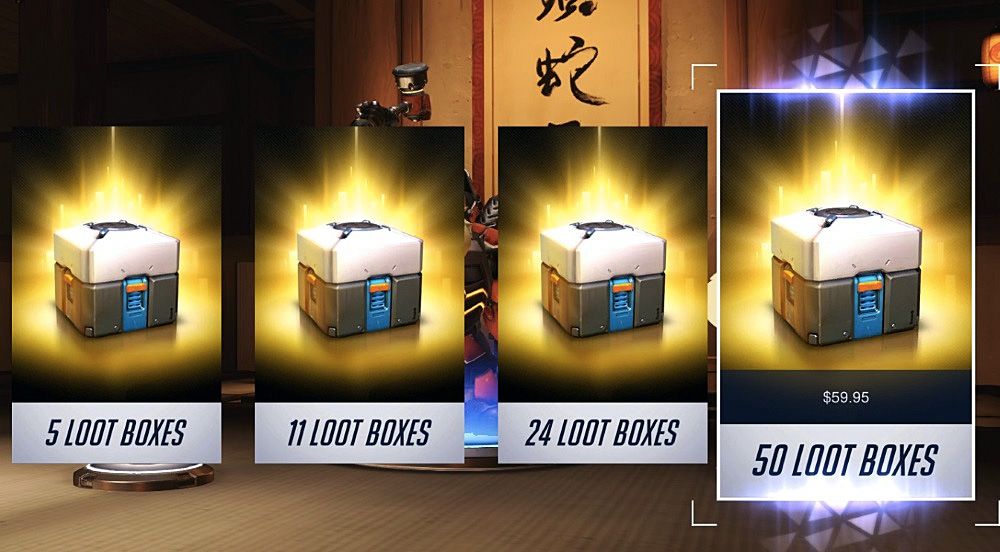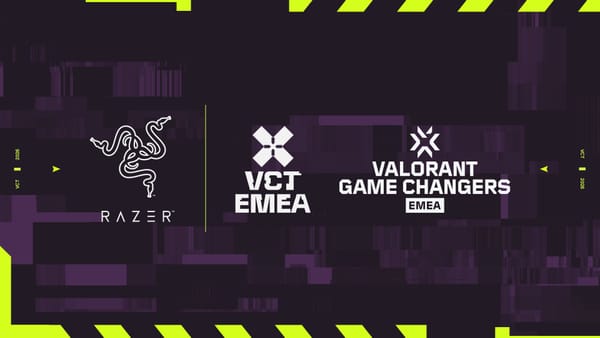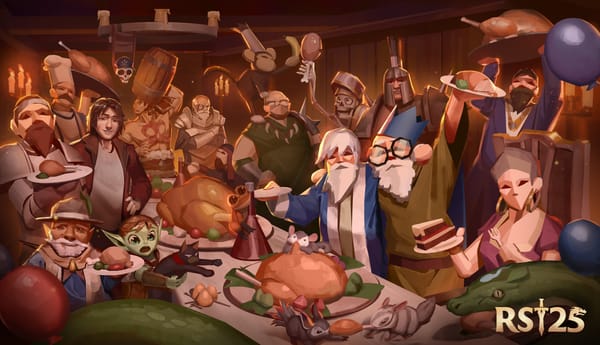Will Loot Boxes soon be History in the German-Speaking World?




According to the first ever German-language court ruling on loot boxes, the tempting boxes are illegal gambling. But can all gamers in Germany, Austria and Switzerland now sue for the money they spent on loot boxes? Exclusive insights into the text of the ruling and the legal classification of the case from litigation funder Padronus provide the answer.
When a short announcement from the Austrian District Court reached the German-speaking games industry at the beginning of March 2023, it was hard to foresee the consequences. Shortly before, on 26 February, the Hermagor District Court, a court of first instance in Carinthia, Austria, had ruled that a plaintiff should be reimbursed the money he had spent on loot boxes in several FIFA games. This was against Sony Interactive Entertainment, who had been sued because the plaintiff had purchased the loot boxes on PlayStation.
The matter gained momentum when, a month later, a spokesman for the district court confirmed exclusively to GamesMarkt that Sony had not appealed the ruling. As a result, the decision became legally binding on 26 March 2023, and Sony had to pay the plaintiff the sum of just over 330 euros plus interest. But much more than the relatively small amount of money that the plaintiff could be happy about, the games industry was interested in the implications of the ruling. This is the first legally binding ruling in the German-speaking world that clearly classifies loot boxes as illegal gambling and therefore an act that is prohibited under the existing legal framework. Across Europe, various organisations had previously attempted to tackle loot boxes in a roundabout way, such as through consumer legislation in Sweden and a voluntary code of ethics for loot boxes in the UK. But in Austria, there is now a precedent that classifies the providers of loot boxes as providers of unlicensed gambling, without having to introduce new laws.
Richard Eibl, managing director of litigation funder Padronus, sums up the legal opinion and the penalty: "According to the legally binding court decision, FIFA Loot Boxes constitute unlicensed gambling in Austria and are therefore prohibited; according to the Austrian Criminal Code, offering unlicensed gambling in Austria is even punishable with a prison sentence of up to six months". Padronus had acted as a litigation funder for the plaintiff in the case in question; the Viennese company specialises in advancing legal costs and finances itself through a percentage commission in the event of success. Padronus is currently suing in a number of other similar cases and, according to Eibl, "several thousand" interested parties have contacted the litigation financier to potentially sue for their Lootbox costs in the future. The ruling alone should have a positive impact on Padronus' chances of winning, not to mention other litigation funders, individual plaintiffs and future legal literature. Eibl sees the verdict as a seminal moment that will shape the future of loot boxes, at least in Austria, for a long time to come. "It is expected to have a strong precedent-setting effect on case law and legal debate. It is directional in the sense that it anticipates the outcome of future court decisions on the same issue. The positive outcome of the case shows that the Austrian Gaming Act already declares certain loot boxes illegal in their current form and makes it possible to recover losses through civil law".
So how does the Hermagor District Court come to such a definite legal decision against FIFA's Loot Boxes? Let us take a look at selected passages from the judgement, which is exclusively available to GamesMarkt.
The linchpin of any criticism of loot boxes that is not based on ethical or consumer protection grounds is the classification of random-based reward packs as gambling. This classification is a matter of interpretation by lawyers, as in all countries gambling is basically defined in legal texts, and these legal texts have to be translated into concrete terms, at least in spirit. In the case of the Hermagor ruling, the judge leaves no doubt about this classification: "A game is to be qualified as a game of chance [...] if its outcome is determined exclusively or predominantly by chance. It is undisputed that the outcome of the FIFA game packs is determined by chance". The fact that FIFA packs come in different quality levels and indicate different chances of obtaining valuable players may encourage more informed purchasing decisions, "but it does not alter the fact that the possibility of obtaining a 'more valuable' player still depends on computer-generated chance". Players could therefore not influence the outcome of the loot box draw, not even by making a purchase decision in favour of another pack, the contents of which they could not influence. The court's ruling is not only final, but also based on Austria's most recent gambling legislation, the new Gambling Act of 2021. "The purchase and opening of the packs is therefore to be subsumed under the concept of gambling, which is also judged as such by the now prevailing doctrine," states the Hermagor District Court. Even at this point in the ruling, it is clear that loot boxes are illegal. Anyone who offers gambling must have a licence to do so, which involves costs and controls. And loot box providers have no such licence to offer loot boxes, neither the publishers nor the platform operators - neither Electronic Arts, nor Sony, nor any of the other console manufacturers. So who's actually doing the gambling, legal or illegal?

In addition to the fundamental question of whether loot boxes can legally be classified as gambling at all, the hearing also addressed the question of who is responsible for organising the gambling. As the publisher of "FIFA 18", "FIFA 19" and "FIFA 20", Electronic Arts would be the first to be considered. However, the case was brought against Sony Interactive Entertainment Europe in London, represented by a Viennese law firm. And rightly so, as the court found, because Sony provides the platform, i.e. the PlayStation Store, which is "necessary for the implementation of games of chance within the meaning of the Gaming Act [and] makes them accessible to participants". Specifically, "the operator in the case of loot boxes is the entrepreneur who grants users access rights to the digital content that is unlocked by opening the loot box". And that is the platform operator, in this case Sony. Asked about the legal classification, Eibl explains the situation as follows: "Basically, there are two different legal bases on which buyers of loot boxes can assert their claims: The law of unjust enrichment and the law of damages. If, as in the present case, the platform operator (Sony) is to be prosecuted, it is sufficient to rely on the law of enrichment. According to the law of enrichment, legally unfounded, i.e. unjustified, transfers of assets can be reversed. Payments for FIFA lottery boxes are therefore unjustified because the underlying legal transaction violates a legal prohibition (prohibition of gambling) and is therefore void. However, the payer's claim for reversal is directed only against the direct payee". In this case, therefore, there was an unjust enrichment claim in that the payments for the loot boxes could only be reclaimed from the party that received them from the purchaser - Sony.
But publishers are not out of the loop either, says Eibl. "The game developer (here: EA) can be held liable on the basis of tort law. According to this, the party liable for the damage caused (to the loot box buyer) is the party that caused the damage through unlawful and culpable conduct. This applies to EA". It is quite possible to bring a claim under both areas of law together, where both developers or publishers and platform providers could be held liable.
From the judge's reasoning in the ruling, another point can be deduced that was raised by Sony's defence: In the case of "FIFA 18", "FIFA 19" and "FIFA 20", you do not buy the loot boxes directly, but first exchange your money for an in-game currency, and only this serves as currency for the loot boxes. Eibl has strong words for this argument and leaves no doubt that he believes it to be legally specious. "The argument that loot boxes have nothing to do with the use of money if the money has to be exchanged for an (artificial) second currency is not convincing and is mostly put forward by people who do not understand the law. Even before the court ruling, this argument was of no significance and was not taken seriously in the literature. After all, the acquisition of points as a secondary currency is obviously never the goal of the loot box buyer's monetary contribution, but always a "means to an end".
The fact that FIFA games, like many other titles with loot boxes and micro-transactions, take a roundabout route via points, which must first be purchased and then exchanged for the loot boxes in the game, is also irrelevant to the assessment of gambling, according to the judge. She states: "The defendant [Sony] offers FIFA Points for sale on its PS Store, the sole purpose of which is to exchange them in the game FIFA for FIFA Packs or to participate in the FUT Draft. The draft, in turn, is also used to distribute FIFA Packs as rewards, he said. "Therefore, the purchase of FIFA Points cannot be considered separately from the exchange for FIFA Packs". This means that money spent on FIFA packs is also considered to be a monetary investment, similar to dropping a coin into a slot machine, if it was previously exchanged for in-game currency in a roundabout way.

But to be considered gambling, it is not enough to have a stake that costs money. A sticking point that has often prevented loot boxes from being classified as gambling on an international level is the additional requirement of a potential profit, which must be present in gambling. Both the stake and the winnings must be present in the form of capital gains, in the simplest case as plain money. The Hermagor District Court sees no problem with this classification, and the reasoning is both conclusive and potentially groundbreaking for future rulings. In detail, the court justifies the clearly more complex question of the possible profit compared to the stake. Since FIFA packs or their contents cannot be exchanged for money in the game itself and are not allowed to be exchanged for money outside the game according to the user agreements, they are not a tradable economic good and therefore not a capital generating service. But whether or not the terms and conditions prohibit trading is irrelevant if it happens anyway, and the judge clearly sees this as a given: "There is, however, an actual market, which is used by at least three percent of all global players - i.e. around 600,000 people - every year". So even a black market is a market. "The fact that [Sony] does not offer the prospect of profit itself is not legally relevant, because according to the text of the law it is sufficient for someone else to do so. The digital content of the FIFA packages therefore has an economic value". The figures on which the court based its ruling came from the testimony of Olaf Coenen, then VP Global Commercial Management at EA, who was questioned by the Hermagor District Court. "According to his testimony, which is the basis for the court's findings, FIFA has more than 20 million users per year, of which about three percent are conspicuous for EA's black market activities," said Eibl. The estimate is therefore conservative, and the number of black market users who do not attract EA's attention is probably much higher.
A final lifeline proposed by the defendants' lawyers did not work in court either. There is talk of an exception for low-stakes games that are only played to pass the time. In doing so, the judge takes direct aim at the very concept of loot boxes, because all the elements that make them so tempting, and that companies go to great lengths to make buying and opening them as satisfying as possible, rule them out. FIFA packs are underpinned by audio-visual enticements" and their purchase in FUT mode is "an essential part of the player's experience". There are no maximum limits for the purchase of FUT packs. Thus, for the defendant, the profit motive clearly takes precedence over the entertainment value of the game". In short, the main purpose of loot boxes is not to entertain players in the short term, but to sell as many as possible to generate revenue. The fact that the ruling also takes into account the very elements of enticement that have been at the heart of consumer law cases against loot boxes is a harsh blow. After all, they are now deeply embedded in the general aesthetic of video games, even in titles that don't use real currency but are only audiovisually oriented towards loot boxes, such as "Vampire Survivors". Indeed, even these are not exempt from accusations of dark patterns, of habituation to harmful practices and of gambling by trivialising aesthetics. These accusations could find new fodder in the Hermagor judgment.
According to Austrian law, the sale of loot boxes is therefore gambling without a licence. Platform operators would therefore have to obtain gambling licences or prevent sales. Money previously spent on loot boxes in Austria can therefore be reclaimed, with interest and free of charge, because "the defendant cannot demand payment for unauthorised actions", the judge concluded in his ruling.
Sony, as well as Microsoft, Valve and EA itself as the operator of the Origin platform, could be faced with a huge amount of work and expense, not to mention a potential claim for damages against EA as the publisher and potentially other providers of games with loot box content.
The fact is: Now that the ruling has become final and binding, FIFA loot boxes in particular are now legally confirmed as illegal in Austria. However, due to the court's detailed reasoning, it may only be a matter of time before the ruling is applied to other loot boxes in cases against games such as the NBA games or "Fortnite". The distribution of loot boxes in Austria would now have to be prevented by official measures, as they are banned by law. Eibl, however, sees things in a more pessimistic light. "Unfortunately, my many years of experience in the fight against illegal online casinos do not give me much confidence in this regard. Although the gambling law is clear and the Supreme Court already confirmed the illegality of unlicensed online casinos in 2017, they are given a free hand. Gambling operators are generating billions in revenue at the expense of player protection, while the authorities have been largely inactive for years; just like in Germany, where online gambling has been banned without exception until the summer of 2021, while at the same time well-known operators have even advertised in football stadiums and on television and nothing has been done. In any case, we see loot boxes as a major danger, as we have recognised the uncontrollable addictive nature of loot boxes in numerous conversations with several thousand victims who have registered with us as part of our collection process".
Speaking of "just like in Germany", it remains to be seen whether the ruling will have a radiating effect on the Federal Republic. In principle, it is possible, because the ruling is based on legal concepts that apply in exactly the same way in Germany and even in Switzerland, so the reasoning behind the ruling is essentially transferable. Until a court in Germany confirms this, however, loot box operators there need not fear for their revenues. Eibl believes it is only a matter of time. If you want to know why, you can read the legal arguments in the quote box below. It is not yet possible to predict how the ruling will affect the companies that are or may be affected by it. In the longer term, it's possible that companies like Sony will remove GSA territories from the distribution of points spent on loot boxes, as Activision Blizzard recently did with "Diablo Immortal" in the Netherlands and Belgium. Getting players to buy into loot boxes has not been easy for some time. Not least because of this, other funding models such as battlepasses are on the rise in many titles. But in the wake of the Hermagor ruling, loot boxes could turn into a PR disaster.
A legal classification by Richard Eibl, LL. M.
"As far as the legality of loot boxes is concerned, the legal situation in Germany is very similar, if not identical, to that in Austria. Let's take a look at the wording of the laws in both countries: A game qualifies as gambling under the Austrian Gambling Act if, firstly, "the decision on the outcome of the game depends exclusively or predominantly on chance" (§1 Gambling Act) and, secondly, "a pecuniary benefit (winnings) is promised in return for the amount wagered" (§2(1)(3) Gambling Act). Both requirements were affirmed by the Regional Court, as the digital footballer that the buyer receives for purchasing the Lootbox is determined by computer-generated chance and also has a value (i.e. an economic equivalent), which is proven by the fact that the digital footballer can be traded on secondary markets on the internet and that a profit can even be made. A game of chance within the meaning of the German State Treaty on Gaming exists if "within the framework of a game, a fee is charged for the acquisition of a chance of winning and the decision as to whether or not to win depends entirely or predominantly on chance" (§3 Paragraph 1 Glücksspielstaatsvertrag). Thus, the same subsumption rules exist in Germany, namely the randomness of the outcome and the "acquisition of a chance to win", whereby a "win" is only possible if the consideration received has an economic value that can be assessed as either a win or a loss. Therefore, the Austrian court decision can also be seen as a milestone and precedent for German case law. Gambling is also subject to licensing in Switzerland. A qualification of loot boxes as such also seems highly likely there."
All legal statements and classifications in this article have been provided in German and translated into English by GamesMarkt.








